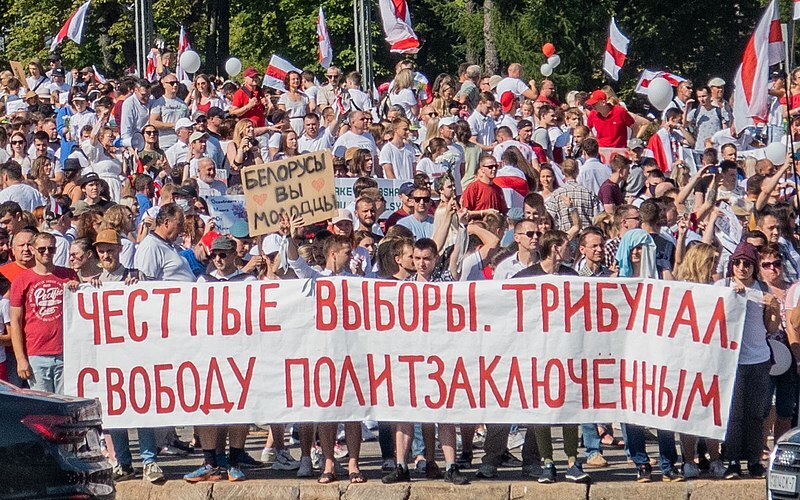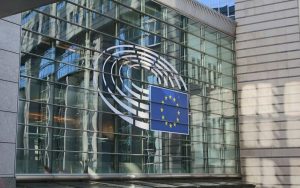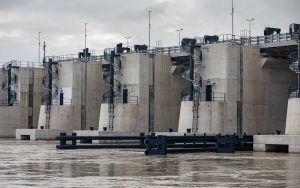The EU’s potential as a global actor and its nature as “soft” or “normative” power is again under scrutiny regarding the escalation of violence against Belarusian protestors following a fraudulent election in August 2020.
Belarus is one of the six Eastern Partnership (EaP) countries that cooperates with and receives assistance from the EU for EU funded Action Programmes. The country also participates in various multi-country projects with the other EaP partner countries. The partnership aims to deepen EU integration and support democratic development yet, without a clear perspective of future membership.
After the violent post-election crackdown on protestors, the EU now, once again, discusses the introduction of sanctions on several Belarusian officials involved and took the first step towards sanctions during a video conference on Friday, 14th August 2020.
While this move is a good sign and sanctions remain one of the most powerful tools for EU foreign policy, given that the EU used to present itself as a soft, or normative power lacking hard power capabilities, it sheds light on a bigger problem that tends to recur in the EU’s common foreign and security policy – the need of unanimity among EU member states. Whereas Germany, Sweden and Austria strongly support the move towards sanctions, others, most notably Hungary, remained silent on events in Belarus and called on the EU to pursue a dialogue instead of sanctions.
Now, whether one may think that sanctions can be effective or not in Belarus, it may be more interesting to look at what EU action may tell us about the EU’s potential as “global power”. Here, it again proves to be true that the EU, even if it decides to impose sanctions, is unable to speak as a united actor, with one voice. It is also evident that discussions on decisions for EU actions are often lengthy – thereby wasting precious time while a country in the EU’s backyard is once again on fire.
Perhaps most importantly, the current situation again demonstrates that the Union is often paralyzed by its own inability to act. This in turn, significantly impacts the EU’s reputation and makes it appear slow, passive or worse incapable, to take action.
In short, the current situation in Belarus is yet another example of why the EU needs to step up its game as a global power, to resemble the powerful and legitimate actor it seeks to represent.
The EU needs faster decision-making processes, which goes hand in hand with a reform of the decision-making process. Moreover, qualified majority voting in lieu of the currently required unanimity in CFSP can make a significant difference. Processes that need to reach unanimous decisions are generally lengthy and may lead to a complete stalemate.
What happens in Belarus, how the EU reacts and decides to act is therefore just another example for the necessity to – finally – reform the block’s foreign policy into something resembling a global power whether it will be a soft, normative or hard power in the end.
Notes
This article was written on 17th August 2020. As of 19th August 2020, the EU decided to reject Belarus’ election results and that it would impose sanctions on individuals responsible for electoral fraud. The block, however, did not call for a new election.
SourcesBarigazzi, J. (2020): EU takes first action toward Belarus sanctions, Politico, https://www.politico.eu/article/eu-belarus-sanctions-first-steps/, accessed, 29.08.2020
Erlanger, S. (2020): E.U. Rejects Belarus Election, Without Demanding a New One, The New York Times, https://www.nytimes.com/2020/08/19/world/europe/eu-belarus-election.html, accessed 20.08.2020
Eastern Partnership Civil Society Facility (2017): https://eapcivilsociety.eu/belarus,accessed, 19.08.2020
European Parliament, Legislative Train Schedule, https://www.europarl.europa.eu/legislative-train/theme-europe-as-a-stronger-global-actor/file-more-efficient-decision-making-in-cfsp, accessed, 19.08.2020
Holroyd, M. (2020): Hungary urges EU to pursue dialogue with Belarus amid violent protest, Euronews, https://www.euronews.com/2020/08/13/hungary-urges-eu-to-pursue-dialogue-with-belarus-amid-violent-protests, accessed, 19.08.2020








Be First to Comment